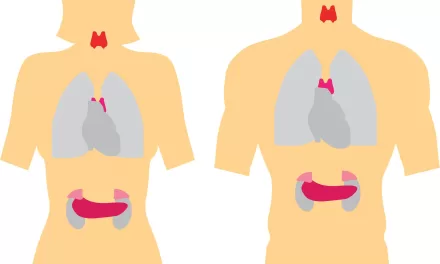Published in the Annals of Family Medicine
A groundbreaking study from the University of Minnesota Medical School reveals that incorporating point-of-care ultrasound (POCUS) into early pregnancy care can significantly improve patient outcomes. The research team found that using POCUS to assess pregnancy viability and gestational age in the first trimester not only enhances care but also reduces emergency visits by a remarkable 81% for patients who do not miscarry.
Previously, early pregnancy care involved multiple appointments for ultrasound, risk assessments, and patient education. However, this new integrated approach allows women who are under 14 weeks pregnant to receive comprehensive care in a single visit. This all-encompassing visit includes ultrasound-based pregnancy dating, immediate pregnancy viability assessment, risk evaluation, and on-the-spot counseling, all informed by real-time ultrasound results.
Dr. Allison Newman, an assistant professor at the University of Minnesota Medical School and family medicine physician at M Health Fairview, highlighted the significance of the study, stating, “Our study demonstrates that the use of point-of-care ultrasound provides meaningful benefit to the patients we serve by addressing early pregnancy problems at the time they are identified.”
Dr. Newman emphasized the efficiency and accuracy that POCUS brings to early pregnancy care, explaining that it allows clinicians to diagnose problems without compromising the quality of necessary first-trimester assessments. This, in turn, saves time, money, and alleviates stress for patients.
The integrated approach was first implemented at M Health Fairview Clinic-Bethesda in the fall of 2022. The clinic quickly realized the advantages of POCUS, which allowed healthcare providers to swiftly identify high-risk cases and offer timely interventions for issues like miscarriage or abnormal pregnancies.
Key findings from the study include:
- A dramatic 81% reduction in emergency visits, urgent clinic appointments, and first-trimester phone inquiries for non-miscarrying patients.
- More timely diagnosis of abnormal pregnancies and enhanced education and support for all patients, including those experiencing miscarriage.
- For miscarriage cases, the average time from initial concern to diagnosis dropped from 5.8 days to just 1.7 days.
Looking ahead, the research team suggests expanding this integrated approach across other family medicine practices and conducting a broader study across multiple healthcare sites to further evaluate its benefits.
This study represents a significant leap forward in optimizing early pregnancy care and could serve as a model for family medicine clinics nationwide, improving patient outcomes, reducing unnecessary stress, and streamlining care processes.
Source: University of Minnesota Medical School, The Annals of Family Medicine
DOI: 10.1370/afm.3180












